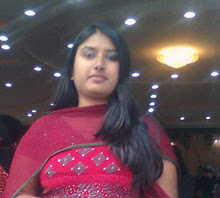A discourse community can be defined as people who share similar thoughts and ideas. The fan base of the Rolling stones for example, might constitute a discourse commmunity. Within this fan base, certain attitudes would be considered unacceptable and outside of the community. For example; someone who didnot hold the song brown sugar in the same high easteem as other member of the discourse community might be summarily tossed but on his ear. Ideology defines what can be disscussed.
Discourse in this manner can exist over time of repersents the total of all written/spoken/recorded thoughts that the community claims. Thus early analysis of the rolling stones is as valid as opinions held today by modern fans. When discourse applies to a larger philosophical ideal, like marxism, discourse explining marxism, predating marxism, and applying marxism to today would all be part of the community, and some study the history of such discourse.
Discourse is flexible to the degree to which a discourse community allow such. For example, the discourse ofthe post-structuralists tends to be wide open to new interpretation and ideas, as well as vehement attack on the contribution of others. As long as some members of the community accept new discourse, then exists without a time line.
Rhetoricians and philosophers often speak of competing discourse. We can see such an example in the Christian right movement and the liberal left. Each group has a discourse that competes with other thoughts and beliefs and each has a history. Some study the times when certain competing discourse begin to emerge and become more popular. For example, a philosopher or political scienctist might look at the predominant religious right and question how this discourse influence presidential elections.
The same analysis of competing discourse might be applied to approaches to literature or art. For example, for a while, post-modernism discou8rse tended to be most influential in the study and interpretation of art. This has led to a backlash from formlist critics and their discourse community. Philosophers like Foucault see competing discourse as something akin to war. In fact, real war can be often attributed to competing discourses.
Others liken discourse and its communities to an essential need for humans to express belonging and share beliefs. The variety of discorse communities is essential because of a person's individual needs. Evaluation of discourse helps us to discover trends in all discourse communities.
Studies may also exist to determine how words within discourse can express viewpoints. The wordscouch potato has negative connotations and is primarily employed by those who view watching tv as an inferior activity. Contrasting this to the words avid tv fan shows how feelings about a subject are often expresses in words. A liberal person might employ the term bible thumper, where a person belonging to the religious right might employ the term religious right. Language choice frequently defines where our thoughts and allegiances lie.
Some effort has been made to nullify insulting language and discourse communities through

